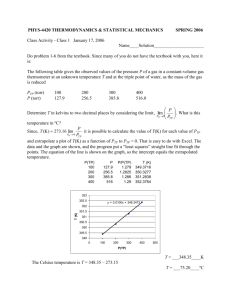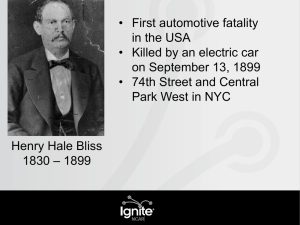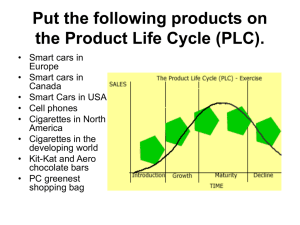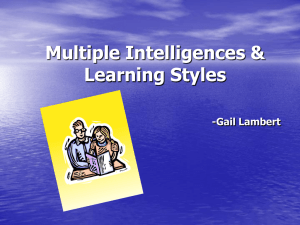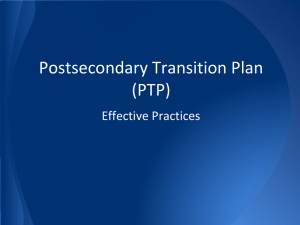SMART Transition Planning Presentation
advertisement
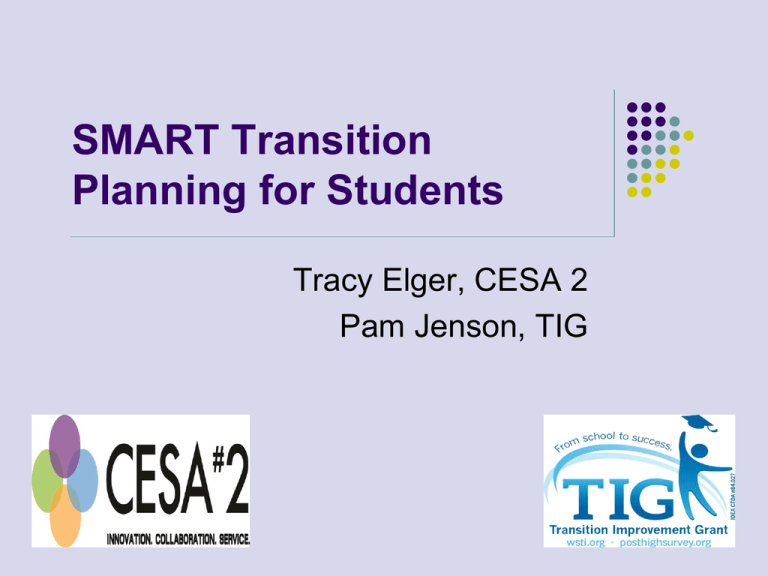
SMART Transition Planning for Students Tracy Elger, CESA 2 Pam Jenson, TIG Agenda What is a Transition Plan The SMART Process Wisconsin Data on Transition Steps of the PTP for SMART Planning Data to Determine College and Career Readiness Transition Plans Grounded in the IEP PTP In the past…I-8…Transition Plan within the IEP Present…Postsecondary Transition Plan…in place of the I-8…Live within the IEP PTP=Transition Plan Are your student’s transition plans SMART? SMART Process S=Strategic and Specific-Transition Assessment M=Measurable-Measurable Post School Goals A=Attainable-Transition Services/Course of study R=Results Based-Monitoring Progress of Transition T=Timebound-Attainable at each Individual Student’s Graduation Why Do We Need a SMART Process for Transition Planning Students with Disabilities Graduation Rates Students with Disabilities in the Workforce Students with Disabilities in Higher Education Students with Disabilities in Independent Living Dropout Rates WISEDASH WISEDASH-DEWS How Could You Use DEWS with SwD? Print out the student profile Examine the DEWS Outcome Score; check to see if any of the sub scores are in the Moderate to High level Supplement with more recent, local data Be sure that the DEWS Outcome Data is current Record information in the Present Levels section of the IEP Create Transition Plan to address warning signs Steps of the PTP for SMART Planning Inviting/engaging the student Providing an age appropriate transition assessment Writing Measurable Post Secondary Goals Education/Training Employment-through WI Career Clusters/Pathways Independent Living Annual Goals The Numbers –Data from the 2013 Survey Although the numbers on the previous slide look good, the reality still is… 48% Students are competitively employed 42% Students are attending higher education 25% Students are living independently The need… Every Student a Graduate: College and Career Ready! The Pressure We must educate the whole child We must attend the child’s daily needs We must prepare the child for their possible future We must meet the needs of all children We must meet the needs of multiple stakeholders with differing expectations We must be accountable The Handbook for SMART School Teams Steps of the PTP for SMART Planning cont. Designing well planned Transition Activities/Services Determining a Course of study and 4 year plan Including outside agencies Giving students their rights once they are age of majority Selecting your SMART Transition Team Principal Special Education Director Special Education Teachers General Education Teacher Guidance Counselor/School Psych Para Professional (if appropriate) Parents Student Transition Assessments A Transition Assessment is needed to complete a PTP Quality Assessments are needed for individualized success Choosing the right assessment to match your students needs is key. Transition Goals Goals in the IEP must be linked to the student’s transition needs Goals must be SMART to allow the student to grow in college and career readiness Course of Study/4 Year Plan When is a 4 year plan written? How does a 4 year plan translate to a course of study in the PTP? How do you link the course of study to the student’s transition goal? How do you monitor a students course of study? Data to Determine College and Career Readiness What data should we be looking at? Where do special education teachers get the data? Other Ideas? Predictors of Post School Success Career Awareness Occupational Courses Vocational Education Work Study Paid Employment/Work Experience Test Preparation/Accommodations Inclusion in General Education Program of Study Predictors of Post School Success Self Advocacy/Self Determination Independent Living Skills Social Skills Community Experiences Family Engagement Student Support Interagency Collaboration Transition Programming How Can Your School Become a SMART Transition School Make it a priority that every student is college and career ready. Understand transition and it’s purpose. It is not the goal for every student just to graduate, but to prepare them for life after high school. Questions
